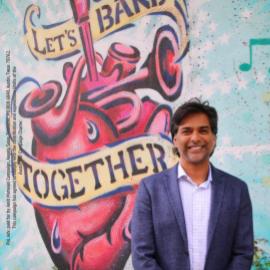Hell yes, it’s a problem. As thankfully laid down on the record by the Mayor’s task force on the same, displacement and segregation of races and classes is inextricably linked to institutional racism and in turn, systemic inequity. Just as we’re displacing so many people of color who are disproportionately affected by these same systems (exemplified by the 1928 Austin Master Plan and its racist zoning mandates), that same study shows that our black residents are not just leaving Austin–but disproportionately leaving– while we experience record population growth, we experience unprecedented population reduction of black residents. In addition to providing the obvious solutions, i.e., serious affordability relief through affordable housing, property tax relief, economic opportunity, and comprehensive navigation of support services for folks who might need it, we must also address deep rooted systemic iinequities that are the result of intrinsically racist institutions. If we were to wave a magic wand that might suddnly create reparations for compunded interest losses of generational wealth AND rectify the wrongs of the 1928 Master Plan, redlining, and the whole other host of systemic barrierrs that work interoperably and subconsciously to repress black people, Austin still has a problem that we project white values–as the we lose longtime black residents, what are we doing to support our existing residents, and in turn to attract new black residents? As Virginia Cumberbatch said in relation to that study, “When we’re putting together our top ten list of people to watch, or we’re putting together five stylish people, and all the people on that list are white. Then, what is my understanding of what Austin represents? It’s white culture.”
Reversing that cultural trend is not something I can do alone–far be it for me to invent what the solution might be…what I can say is that solution will be borne from having these exact conversations unapologetically and openly– and heavily engaging with black residents and leaders, and community groups in Austin to guide that process. That should ALWAYS be the first and most important step and I will do my best to do the same, and I’d love to hear the ideas of the Black Austin Democrats around this matter. The road is long, though, I believe. The first step is acknowledgement, and I’m so so sorry that we’re still just chipping the surface on that.

